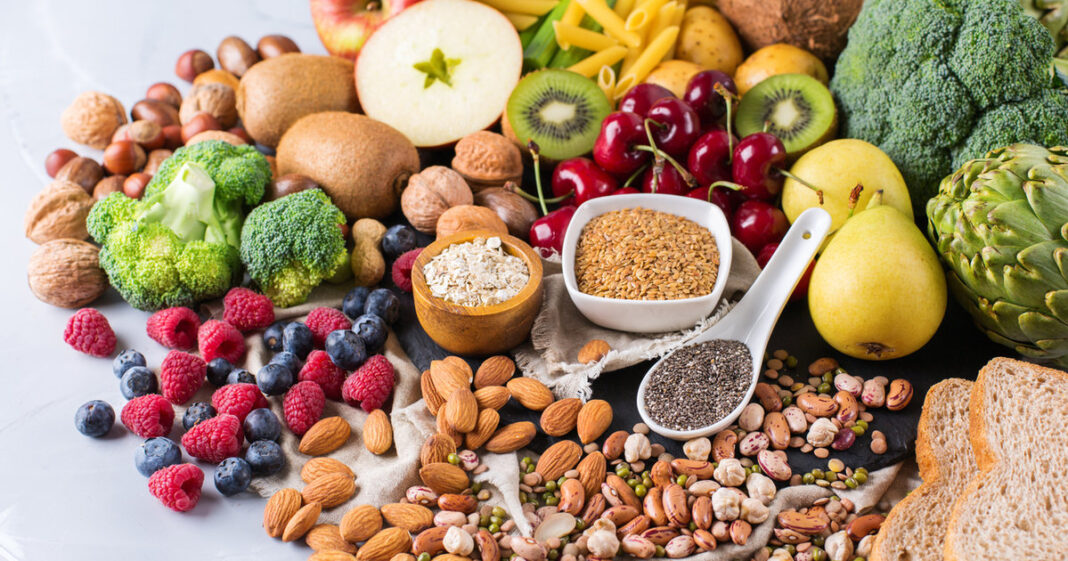- A recent study examined the potential effects that consuming different forms of protein may have on heart health.
- The researchers were interested in the ratio of plant vs. animal-based protein people consumed and their long-term health outcomes.
- The researchers learned that consuming a higher ratio of plant to animal protein could lead to a reduction of both coronary heart disease (CHD) and cardiovascular disease (CVD).
With deaths attributed to heart disease holding the top spot in the U.S., researchers wonder how to cut that number. While medications and technological interventions help, diet remains a focus point for those looking to prevent heart disease or improve their health after being diagnosed with it.
Researchers at the Harvard T.H. Chan School of Public Health recently released the results of a 30-year study that analyzed the effect consuming more plant-based protein than animal-based protein has on heart health.
While the research did not yield a specific ratio of plant to animal protein to incorporate into dietary guidelines, the researchers did learn that people who consume more plant-based protein generally have lower ratios of both CHD and CVD.
People with the highest ratio of plant to animal protein had a 19% lower risk of CVD and a 27% lower risk of CHD.
The study was published in the American Journal of Clinical Nutrition.
Shifting the focus to plant-based protein sources
According to the Centers for Disease Control and Prevention, heart disease is the leading cause of death for both adult men and women. In 2022, around 1 out of 5 deaths were attributed to heart disease.
There are many reasons someone can develop heart disease, such as genetics, poor dietary choices, and habits such as smoking tobacco products and drinking alcohol.
People concerned about their heart disease risk can lower it by exercising and making better food choices. For example, choosing lean meats vs. fatty red meats can reduce heart disease risk.
While protein is a staple in a diet, and focusing on lean proteins is more beneficial for the heart, some researchers wonder if people should focus more on consuming proteins derived from a non-animal source.
Diets that focus on plant-based proteins have increased in recent years as vegetarianism and veganism rise. Quinoa, edamame, and chickpeas are examples of the plant-based proteins people use.
With the benefits of consuming non-animal sources of protein in mind, researchers in the current project accessed data compiled in a 30-year study to develop a better understanding of how higher ratios of plant-based protein impact the heart.
The study involved more than 200,000 participants. People who signed up to participate who already had CVD or cancer were excluded.
The participants provided information about their health every two to four years and completed food frequency questionnaires (FFQ) every four years. With the FFQ, the participants reported how often they consumed specific foods over the past year, which the researchers used to determine their daily ratio of plant to animal protein intake.
Throughout the study, if a participant reported having a major illness that would potentially cause them to make changes to their diets, the researchers stopped tracking their FFQs.
Once the study concluded, the researchers analyzed dietary intake and CVD and CHD outcomes.
A higher ratio of plant-based protein yield heart benefits
By the end of the 30-year study, 16,118 participants reported developing CVD, and 10,187 participants reported developing CHD. Additionally, 6,137 participants reported having strokes.
The researchers compared this data to the plant-animal protein ratio to see if they could find any connections between the ratio and CVD/CHD risk.
Participants with higher plant-to-animal protein ratios showed a significantly reduced risk of CVD compared to those who had the lowest plant-to-animal protein ratio – they had a 19% lower risk. The reduced risk for CHD was even more impressive at a 27% lower risk.
The researchers said that a plant-to-animal protein ratio should be 1:2 to lower the risk of CVD and 1:1.3 for CHD.
The scientists noted that over the 30-year study, participants with a higher plant-to-animal protein ratio had lower BMIs, were less likely to be smokers, and were more active.
While the researchers found positive benefits for a higher plant-to-animal protein ratio for reducing the risk of CVD and CHD, they did not find such benefits associated with stroke.
The study authors pointed out that despite these findings, they have not identified an optimal plant-to-animal protein ratio and said more research is needed.
Nutrition tips for consuming more plant protein
John Higgins, MD, a cardiologist at UTHealth Houston, who was not involved in the study, spoke with Medical News Today about the study.
Higgins said the findings are “consistent with prior studies that recommend plant-protein-based diets or Mediterranean diets as the best diets to prevent CVD as well as reduce further events.”
The Mediterranean diet focuses on eating plant-based foods, healthy fats, and whole grains.
Since the authors noted different optimal ratios for preventing CVD and CHD, Higgins offered an explanation for this.
“A higher ratio for prevention of coronary heart disease might further improve blood lipids, blood pressure, and inflammatory markers – because of the fact that plant proteins are accompanied by high amounts of fiber, antioxidant vitamins, minerals, and healthy fats,” he noted.
Higgins suggested that people interested in improving their plant-to-animal protein ratio should cut back on red meat and focus on eating more healthy nuts.
“Eat more healthy nuts daily as a source of protein. Nuts are a good source of protein, fat, and fiber, have a low glycemic index, reduce CVD and some cancers, and improve cognitive functioning too,” he added.
Cheng-Han Chen, MD, board certified interventional cardiologist and medical director of the Structural Heart Program at MemorialCare Saddleback Medical Center in Laguna Hills, California, who was not involved in the study, also spoke with MNT.
Chen said the study findings were “entirely consistent with many previous studies which found that eating more plant-based protein instead of red meat reduces the risk of many cardiometabolic conditions including heart disease, stroke, hypertension, high cholesterol, diabetes, and obesity.”
When asked whether adjusting the plant-to-animal protein ratio would be difficult for most people, he said it should be doable.
“A 1:2 plant-to-animal protein ratio means that 33% of protein intake comes from plant sources. As the average American currently gets [just over a quarter] of their protein from plant-based sources (1:3 ratio), we are talking about replacing only a relatively small amount of animal protein with plant protein in order to get significant benefits to heart health,” Chen pointed out. (https://www.medicalnewstoday.com/articles/eating-more-plant-protein-vs-animal-protein-may-lower-risk-heart-disease-as-much-as-27#A-higher-ratio-of-plant-based-protein-yield-heart-benefits)





































